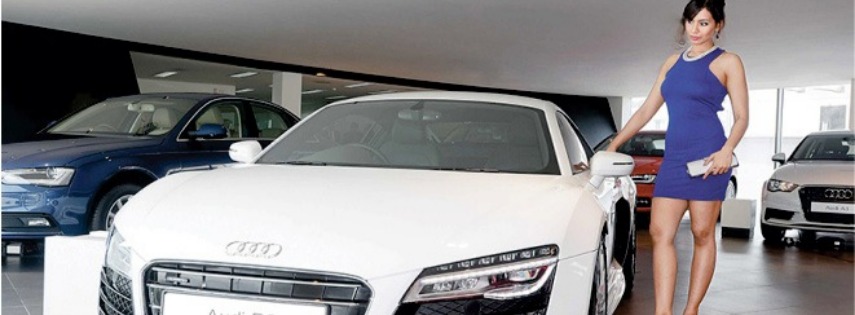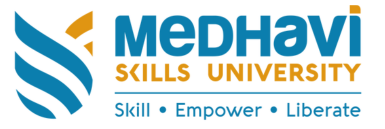
The Changing Face of Luxury In India
The Indian luxury landscape is clearly experiencing Strong evolutionary undercurrents that are redefining the consumer profile
In the past few years, luxury in India has been growing at a compound annual growth rate (CAGR) of about 25 per cent. As per a report by Assocham, the market is expected to exceed Sl 8.6 billion by 2016-17. Interestingly, as per Amitabh Kant, CEO, Niti Aayog, the luxury industry in India has the potential to grow 10-fold from ts current size and reach a topline of 5180 billion by 2025.
The Indian luxury landscape is clearly experiencing strong evolutionary undercurrents that are redefining the consumer profile and also how luxury players need to operate in this domain.
Service areas such as fine dining, electronics, luxury travel, luxury personal care and jewellery have seen increasing revenues and are expected to grow 30-35 per cent over the next three years. Spending on luxury cars continues to rise growing upwards of 18-20 per cent. As the purchasing power of women is rising in India, luxury beauty products market is witnessing a fast-paced growth. According to Euromonitor International, the luxury product categories that have recorded considerable growth are luxury jewellery as well as timepieces, luxury writing instruments/stationery; super premium beauty/personal care products, luxury electronic gadgets and luxury tobacco.
Besides, the Indian luxury market is developing many facets. Luxury is no longer restricted to the rich and famous alone; the new age consumers, who do not typically fit into the boardroom definition of luxury consumers, are staking claims to luxury products, brands and services, but on their own terms.
Luxury is no longer the privilege of the few who were born into wealth. There is now a larger consumer base, which has the money to splurge but want a real value proposition. Going forward, this will be the biggest challenge faced by luxury brands this year.
It is against this backdrop that one needs to study the key challenges presented by the changing face of luxury in India:
- Value proposition: One of the key challenges for luxury industry is to establish a right 4.•alue” equation in the Indian consumer minds. Commensurate value — given the craftsmanship of the product , the brand pedigree and heritage, and therefore its impact on their status — professionally in business and in society. In a country obsessed with ‘quantity over quality — the ‘kitna deti hai’ syndrome cannot be ignored.
- Targeting a first-time buyer: India throws up surprises to one and all. McDonald has to invent a McAloo tikki burger priced at Rs 25 and created especially for India. 3MW, Audi, and Mercedes Benz have all realised the potential of this ‘first-time luxury buyer. It cannot be ignored and yet needs to be treated well like any other luxury consumer. The definition of luxury consumer is changing rapidly in India. Intimidation created by the aura of the brand, lack of brand knowledge, enthusiasm to obtain a social status symbol are key elements that a brand needs to cater to.
- Mental barrier to conspicuous consumption: While a set of customers wants to flaunt its luxury purchase, there is another which is vary of conspicuous consumption. The ‘nazar lag jayegi’ syndrome drives away many a shy customer. This is a mindset issue which the brands/franchisee need to tackle. Rewarding oneself for success achieved after hard work needs to be celebrated the Cadbury ‘kuch meetha ho jaye’ campaign says it all. Welcome this shy, first-time buyer with grace, dignity and respect.
- Retail environment: More brands, more services, more customers — they all need the right retail environment. Luxury retail infrastructure is nonexistent and street level environments are often unkempt. This forces luxury brands to generally launch boutiques in luxury malls or hotels. ‘Hybrid malls’ — the Select City Walk in New Delhi and The Palladium in Mumbai are the best examples of transitional customer behaviour when the customer moves up the value chain.
- Talent: With so many varied customers shopping luxury, a key challenge is talent. Cannot be too sophisticated to scare away the new customer, at the same time cannot be too ordinary to make an aristocratic customer shy away. Driving this balance in line with the brand’s cultural customer experience is perhaps the biggest operational challenge for any franchisee or brand. Train, educate, invest and believe in your staff — this could be the best way to empower your talent.
- Regulatory Cholesterol : (a) Foreign direct investment restrictions are keeping brands out of India, 51 per cent foreign ownership is the limit; 100 per cent is allowed but only with 30 per cent local sourcing which many brands find difficult to comply with. Recent amendment of elongated relaxations of initial period is confusing and unclear to most. Brands fear for dilution of their name and harm to their business models.
(b) Import tariffs are high at an average 30-40 per cent, which causes simple price parity and margin issues for retailers. It is hence often cheaper for Indians to buy abroad.
(c) The presence of “knock off’ products in the local market. The local market is much more open/susceptible to trade in fake goods. As per Assocham, the size of the counterfeit luxury goods market in India was estimated to be a whopping Rs 5,600 crore in 2015.
(d) Multiple taxes across the country maintaining a single MRP with differential taxes across states has been a challenge till date. Recent GST rollout is, however, expected to ease this by April 2017
(e) Crackdown on big ticket purchases by the IT department. Revision of cash transaction limits to Rs 2 lakh from the earlier Rs 50,000 could help the luxury sectors like fashion, footwear, low end jewellery/watches; bags and accessories, etc. However, recent reports about legitimate big ticket purchase items being targeted by IT officials is expected to affect sales. Customers just want to avoid the harassment value and prefer to shop abroad.
(f) Ease of doing business, including general infrastructure of roads, airports, warehouses, add further to the challenges. Besides, real estate is heavily regulated for a brand to want to build ground up.
As the disposable income of the aspiring consumers in India rises, and the share of men and women as a separate category keeps further increasing, luxury and bridge brands will continue to outperform.
Brands and businesses need a conducive environment from all fronts to help create a presence and maintain personal touch with customers across platforms. Focus on maximising the efficiency of supply chain and human capital by training their associates will be the ones to increase conversion and retention.
The journey has just begun! This article was published in Businessworld issue dated ‘Oct. 17, 201 6’ with cover story titled ‘The Luxury Special 2016’
Abhaya Gupta
Founder & CEO, Luxury Connect & Luxury Connect Business School







